A year in the City: from ruinous shortages to creeping inflation
2021 was a year of supply chain disruptions and big stock market floats
A free daily email with the biggest news stories of the day – and the best features from TheWeek.com
You are now subscribed
Your newsletter sign-up was successful
1. January
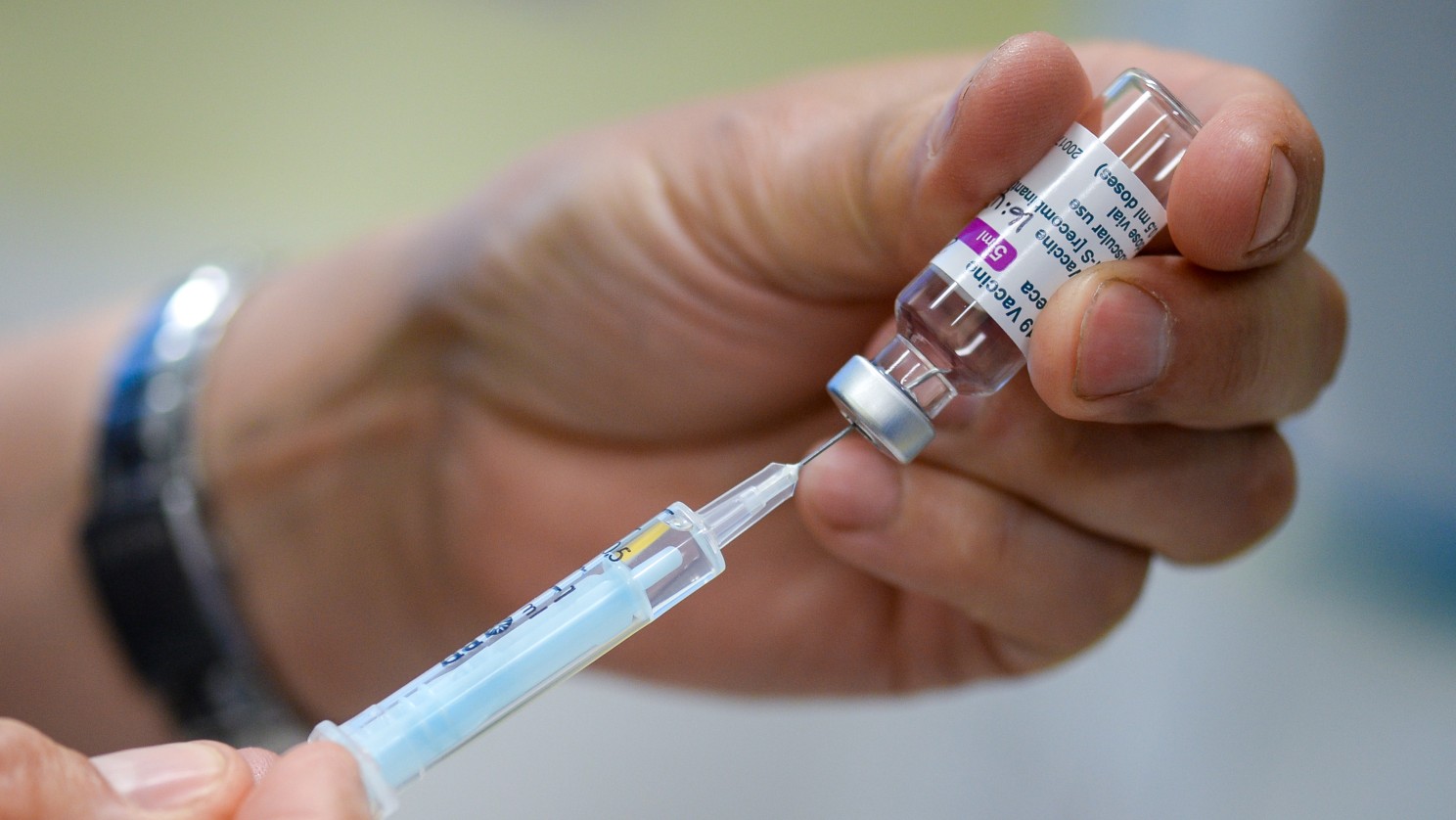
The second year of the Covid era began with much of the world, including Britain, back in lockdown. Hopes of a vaccine-led recovery were tempered by the threat of a double-dip recession. A new trading regime with the EU came into force; the “thin” deal excluded services – and nearly €6bn of share-dealing shifted to the continent on the first day of trading.
US stock exchanges wobbled as a lawless mob stormed the Capitol, but recovered to hit new all-time highs, on the prospect of a big-spending Democrat administration led by President Joe Biden. Surging Tesla shares saw founder CEO Elon Musk become the world’s richest man, worth $185bn.
EU/UK relations were strained by a “battle for jabs” following a delay in AstraZeneca’s supply of the vaccine. CEO Pascal Soriot said the pharma was “working 24/7” to fix production issues. A “people’s revolt” – pitting day-traders on the forum WallStreetBets against hedge funds – saw shares in a heavily shorted video retailer, GameStop, rise 1,625% in a month, burning many funds in the frenzy.
The Week
Escape your echo chamber. Get the facts behind the news, plus analysis from multiple perspectives.

Sign up for The Week's Free Newsletters
From our morning news briefing to a weekly Good News Newsletter, get the best of The Week delivered directly to your inbox.
From our morning news briefing to a weekly Good News Newsletter, get the best of The Week delivered directly to your inbox.
2. February

Hopes of a bumper IPO year in London were boosted by the flying debuts of the online card retailer Moonpig and bootmaker Dr. Martens. The ONS confirmed that the economy shrank by 9.9% in 2020 – the biggest contraction since the Great Frost of 1709.
As CPI inflation fell to just 0.4%, the Bank of England gave banks six months to prepare for the possibility of negative interest rates. But there were signs of potentially inflationary bottlenecks in global supply chains.
The Nigerian economist, Ngozi Okonjo-Iweala, became director-general of the WTO – the first woman and the first African in the role.
The disgraced fund manager Neil Woodford made his comeback via a Jersey investment firm. Ministers published a “roadmap” out of lockdown, offering a glimmer of hope for battered hospitality and travel sectors.
A free daily email with the biggest news stories of the day – and the best features from TheWeek.com
3. March
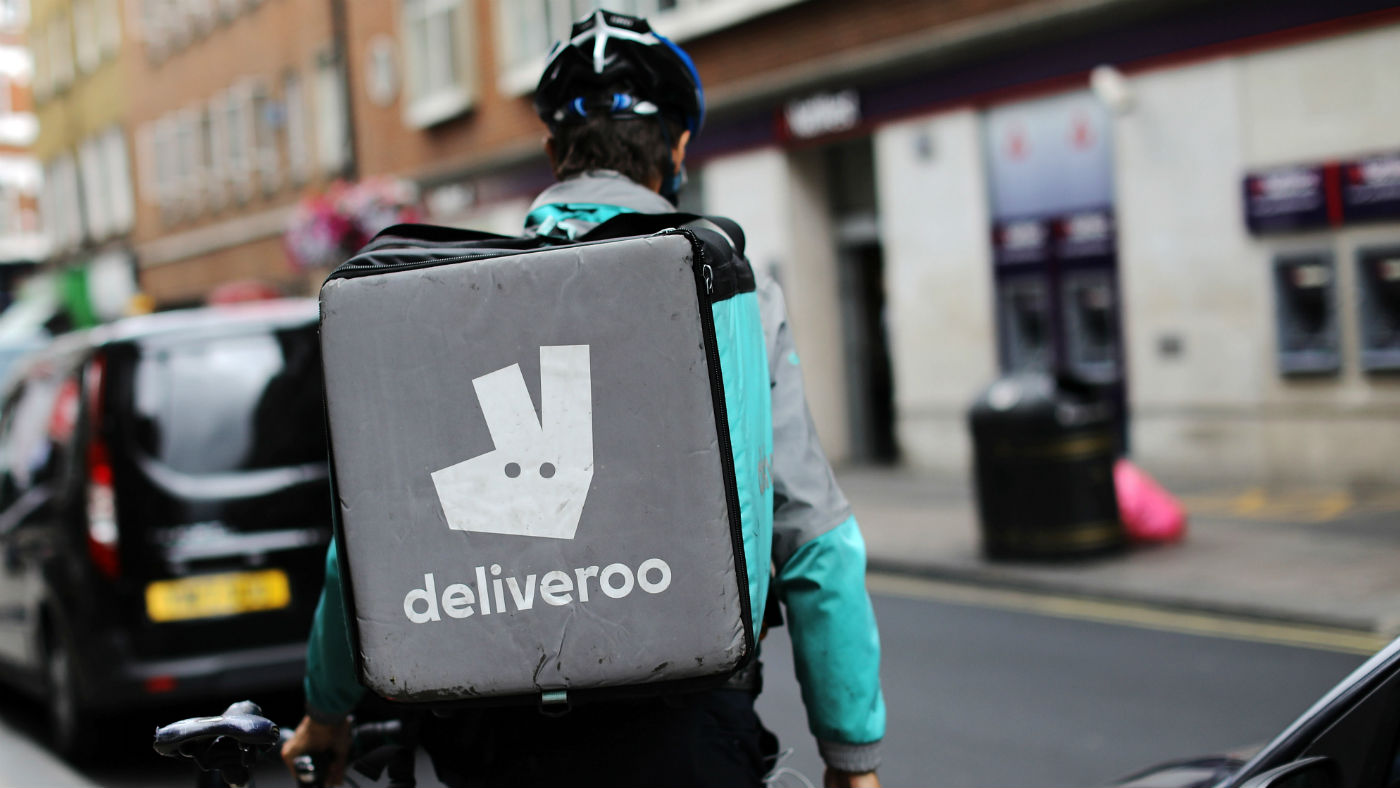
Vowing to rebuild “the backbone of this country”, President Biden signed a $1.9trn economic relief package.
The spectacular collapse of Greensill Capital – a “supply-chain finance” firm founded by the Australian financier Lex Greensill and advised by the former PM David Cameron – sent ripples through finance, industry and government. There were fears that one big debtor, Sanjeev Gupta’s global steel empire, GFG Alliance, could fail.
The headline measure of Chancellor Rishi Sunak’s “jam today, pay tomorrow” Budget – a hike in corporation tax to 25% – was delayed until 2023 and cushioned by a £25bn tax break. The furlough scheme and the stamp duty holiday on house sales were extended.
Plans for a more “entrepreneur-friendly” FTSE listing regime were undermined when the poster-child for the initiative, restaurant delivery group Deliveroo, flopped on flotation. Shares fell 26% on day one, the worst performance for a big UK listing in decades.
4. April
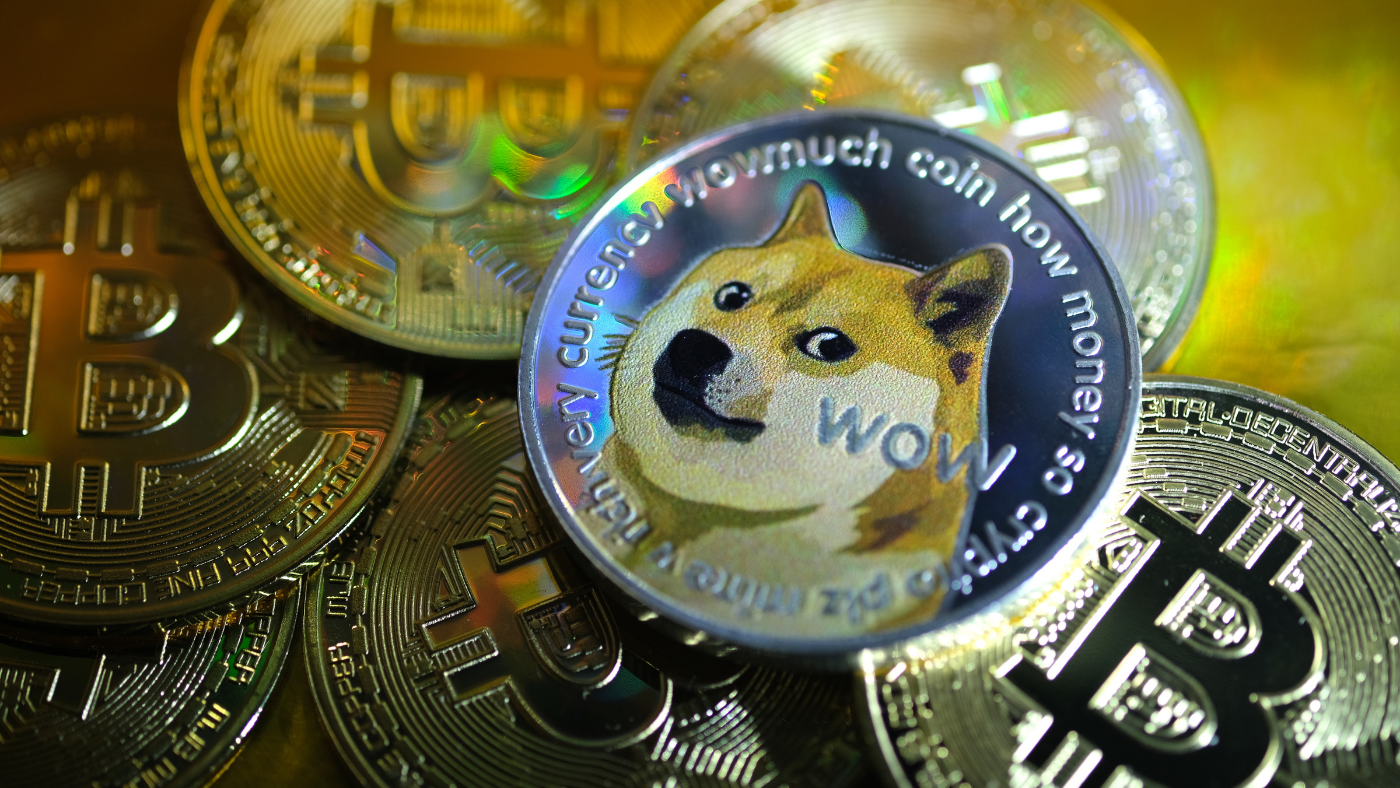
The US treasury secretary, Janet Yellen, called for a global minimum tax rate for large companies; it was eventually agreed in November. The IMF warned that monetary stimulus was fuelling “excessive risk-taking”.
The price of bitcoin shot to a new record of $65,000 ahead of the blockbuster $100bn flotation of the US crypto exchange Coinbase. The value of Dogecoin – a “joke” currency championed by Elon Musk – rose by 9,000% on January prices.
Shops and pub gardens reopened in Britain, amid a continuing housing boom. Plans to create a breakaway football European Super League collapsed following widespread protests; JPMorgan apologised for financing the scheme. The cybersecurity firm Darktrace staged a successful listing in London.
Apple, Sony, Microsoft and big carmakers warned of a shortage of computer chips. A catastrophic wave of Covid, the Delta variant, struck India.
5. May
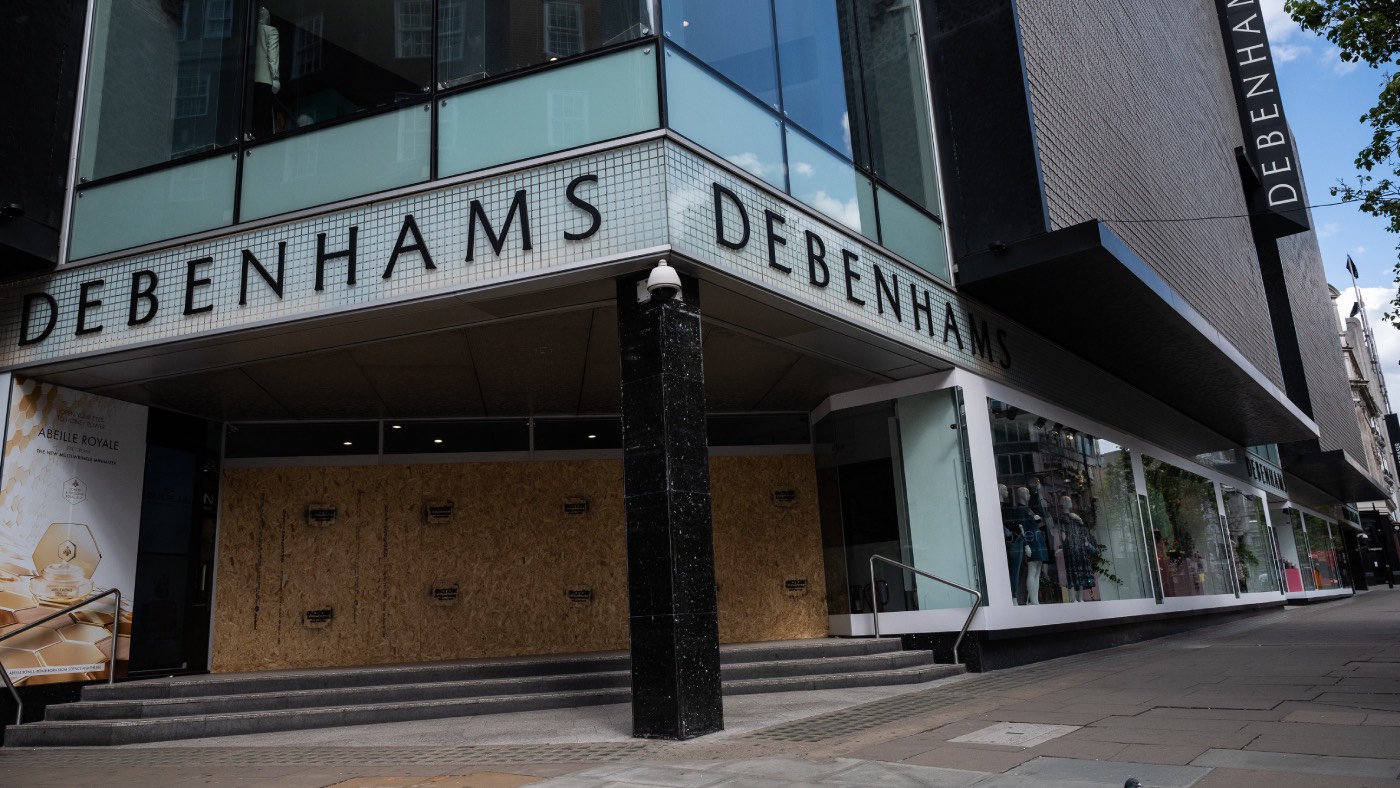
Debenhams closed its final department stores, ending more than 200 years on the high street. The BoE upgraded the growth forecast for 2021 to a booming 7%, claiming that inflation was still “well-anchored”, but outgoing chief economist Andy Haldane warned of “a wagey-pricey spiral”.
Prices of building materials soared as iron ore and copper prices hit new record highs. Shares in The Hut Group, Matt Moulding’s e-commerce empire, jumped following a £1.9bn cash injection from the Japanese investor SoftBank. China took the lead in rolling out a national digital currency – the e-CNY.
The Swedish oat milk producer Oatly floated on Nasdaq – a measure of accelerating consumer demand for “plant-based alternatives”. The Government announced a big shake-up in railways, overseen by a new state-owned body, Great British Railways.
6. June
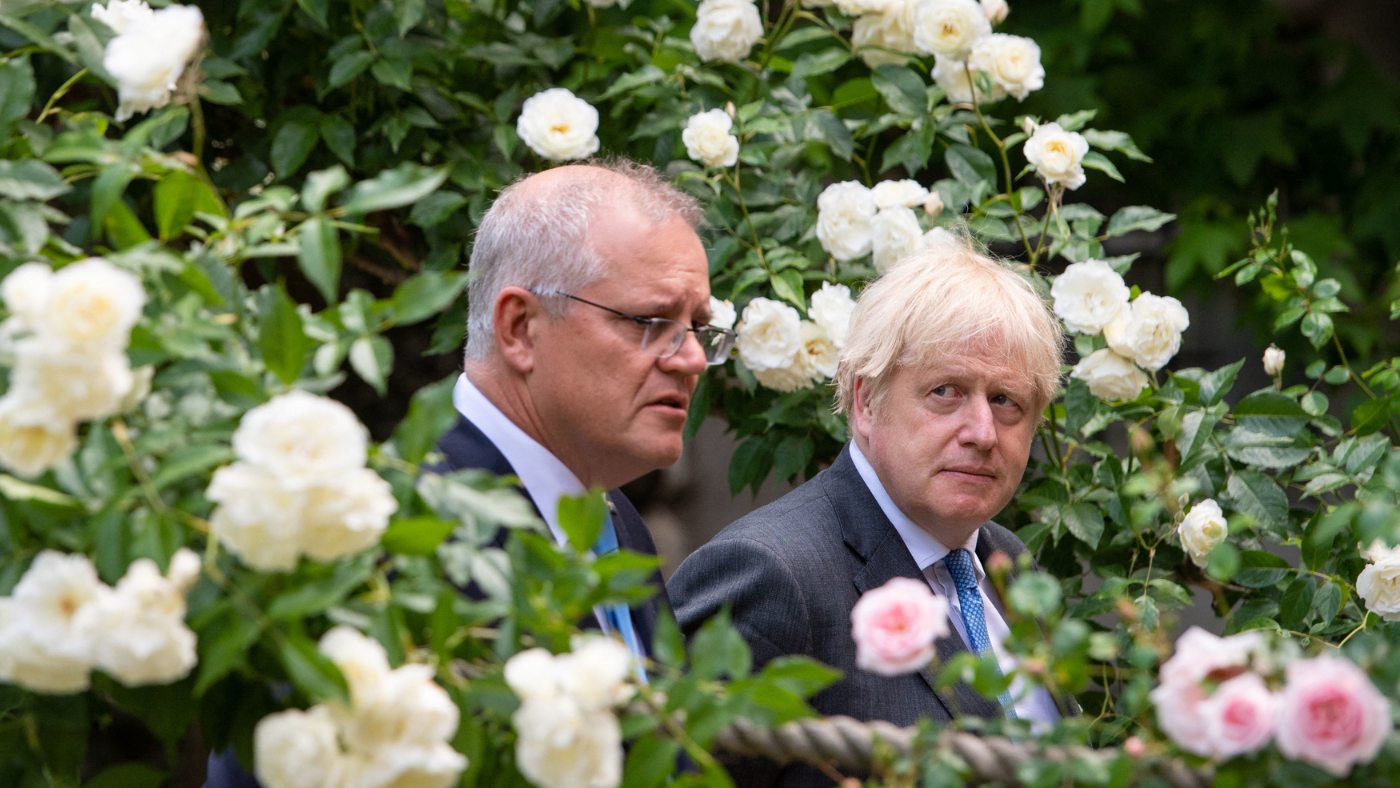
Royal Mail made a triumphant return to the FTSE 100 following turbocharged demand for parcels. Tim Martin, the Brexit-backing Wetherspoon pubs boss, called for a relaxation of visa rules to tackle acute labour shortages.
The outbreak of the “sausage wars” – a standoff over EU regulations on uncooked meat products – threatened to jeopardise trade talks over Northern Ireland.
The green hedge fund Engine No. 1 forced a boardroom coup at Exxon. Ahead of the G7 meeting in Cornwall, the US and the EU called a truce on the 17-year-old fight over subsidies to plane-makers Boeing and Airbus.
Britain signed a trade deal with Australia – the first negotiated from scratch since Brexit. Shares in the Chinese ride-hailing app DiDi tanked after it listed in New York, in defiance of the Chinese government.
7. July

The £8bn flotation of Wise – the Shoreditch-based money-transfer firm founded by Estonians Kristo Käärmann and Taavet Hinrikus – broke records for the biggest-ever tech listing in London. The shortage of HGV drivers was reported to have reached crisis point.
Virgin Galactic’s successful test flight enabled founder Sir Richard Branson to claim the crown of the first billionaire into space, beating Jeff Bezos, who also stepped down as CEO of Amazon after 27 years on 5 July.
The Government lifted the order to work from home, stressing a gradual return, amid mounting cases of the Delta variant. The “pingdemic” – large numbers being ordered to isolate by the NHS app – worsened staff shortages.
Robinhood’s $32bn Nasdaq float underlined the online brokerage’s “stratospheric growth” since the start of the pandemic. A stream of government crackdowns prompted big falls in Chinese blue-chips.
8. August
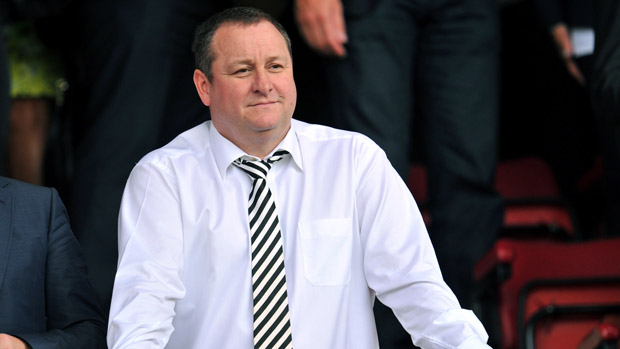
Mike Ashley, founder of Sports Direct, announced he would step down as CEO of his sprawling high-street empire in 2022, to be succeeded by Michael Murray, his daughter’s fiancé.
The BoE predicted that CPI inflation would reach 4% in late 2021/early 2022, but maintained that it was “transitory”. Pfizer reported that its Covid vaccine would likely generate $33.5bn in 2021.
Macquarie, the Australian investment giant, bought a controlling stake in Southern Water – reflecting an explosion of foreign interest in “cheap” UK blue-chips, from the supermarket Morrisons to the defence companies Ultra Electronics and Meggitt.
City investment banks celebrated their best year on record for M&A fees. The biggest company in the FTSE 100, the £137bn Australian mining behemoth BHP, announced plans to quit London.
Health Secretary Sajid Javid vowed to crack down on “cowboy” companies providing PCR tests at grossly inflated prices. Sharon Graham became general secretary of Unite, vowing to do away with union “passivity”.
9. September
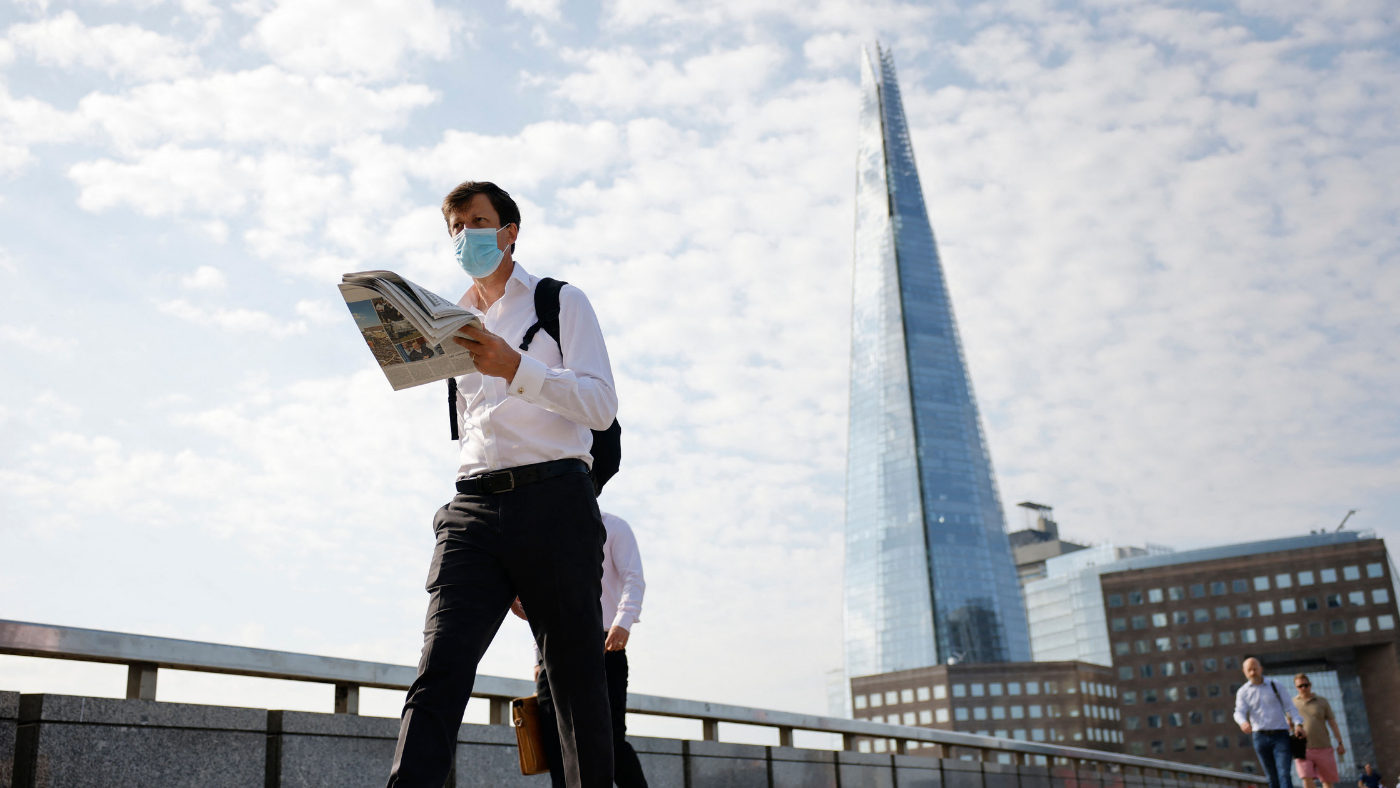
The surprise announcement of a national insurance hike met with protest from business groups. The £12bn annual increase left the UK with its highest tax burden since 1950. The Government launched Britain’s first “green gilt”, raising more than £10bn for green projects on its first day.
The London Metal Exchange’s trading floor, the Ring, reopened for business after 18 months, but elsewhere the return to work was hesitant. Consultants dubbed it “The Great Wait”. Companies dangled ever more imaginative carrots to employees to avoid falling victim to “The Great Resignation”.
A record spike in natural gas prices forced several small energy firms to cease trading. Washington abandoned its long-running quest to extradite Huawei’s CFO, Meng Wanzhou, from Canada for alleged fraud.
10. October

The tobacco giant Philip Morris bought the UK inhaler-maker Vectura for £1.1bn, to the disgust of medical professionals. Several Chinese cities suffered blackouts, owing to further steep energy price rises.
A sharp slowdown in UK manufacturing growth prompted warnings of “stagflation” – as a series of disruptions choked global supply chains. The fast-fashion retailer Boohoo reported that shipment prices from Asia had jumped “sixfold”. Maersk diverted its big cargo ships from UK ports, blaming the HGV shortage.
Persistent inflation prompted City speculation of a rate rise as early as November. In his Autumn Budget, the Chancellor claimed he was on a “moral” mission to limit state spending and cut taxes – while pumping more money into public services.
Morrisons was bought by private equity firm Clayton Dubilier & Rice for £10bn. Sanjeev Gupta’s UK Liberty Steel resumed production following a restructuring.
A former Facebook employee turned whistleblower, Frances Haugen, accused it of “prioritising profits over user safety”. Founder Mark Zuckerberg rebranded the parent company Meta – in line with his plan to create a virtual “metaverse”.
11. November
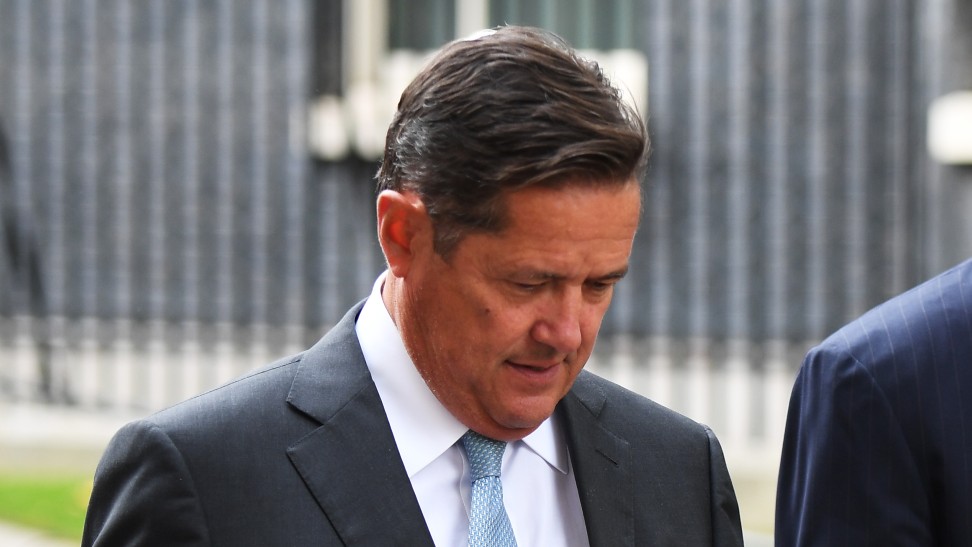
Barclays CEO Jes Staley quit, following an investigation into his links with the sex offender Jeffrey Epstein. Shares in The Hut Group plunged to an all-time low as fund manager BlackRock halved its stake.
The Irish airline Ryanair said it would delist from the London Stock Exchange, blaming EU rules banning foreign ownership of airlines. The Government ordered an investigation into the proposed $54bn takeover of the British chip champion Arm by the US giant Nvidia.
US inflation hit 6.2% – the highest rate in three decades. Jerome Powell was reappointed chair of the US Fed.
BoE governor Andrew Bailey was accused of “bottling” a signalled interest rate rise. The UK’s seventh largest energy supplier, Bulb Energy, collapsed, taking the tally to more than 20. It was effectively nationalised.
The value of the electric truck-maker Rivian, which had yet to produce any revenue, shot to $140bn after its Wall Street debut, making it the third most valuable carmaker. M&S bounced back to profitability. Stock exchanges plunged on the emergence of a new Covid variant, Omicron.
12. December
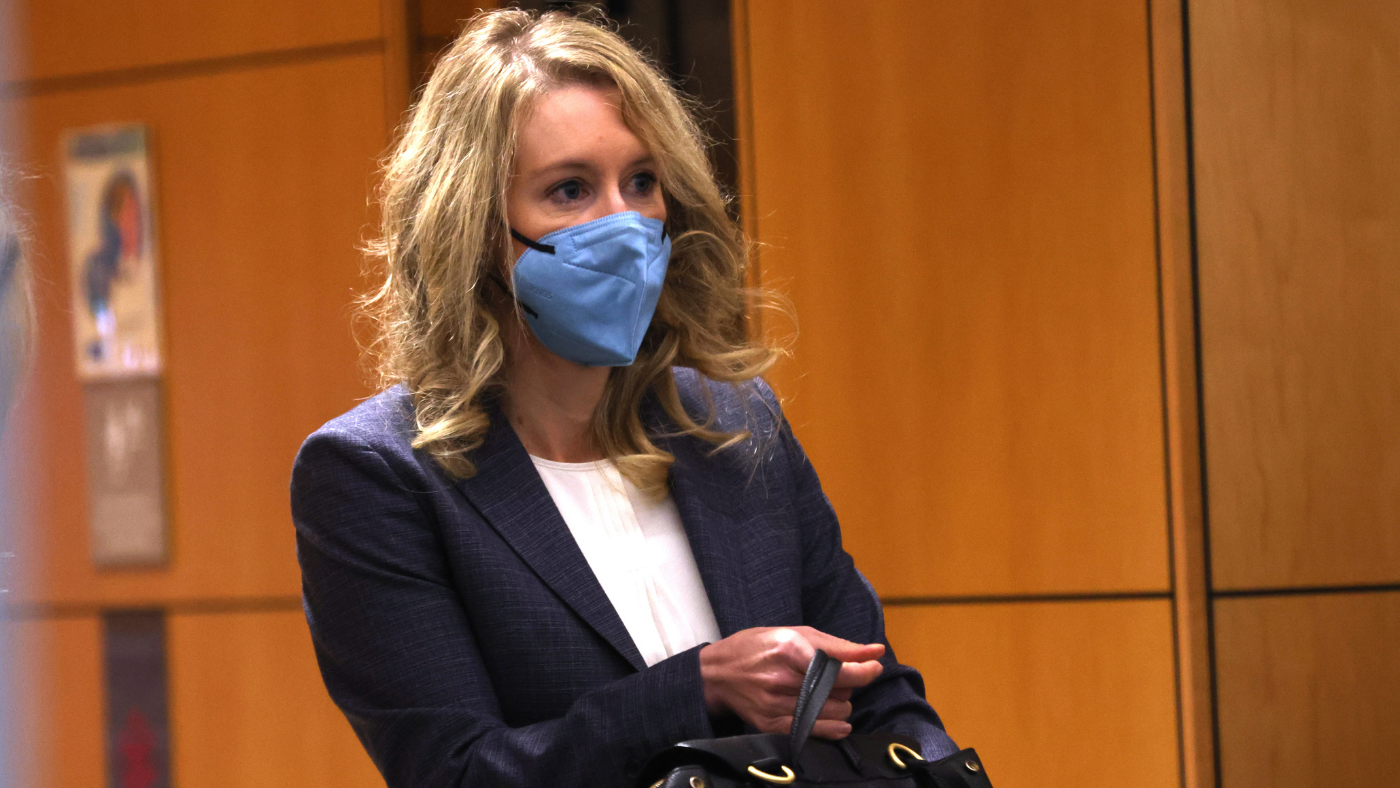
The UK Government announced new Plan B measures to combat Omicron, including the return of home-working. The High Court in London ruled that it is unlawful for Uber to act as an “agent” between a driver and passenger – upending its business model.
DiDi Chuxing bowed to pressure from Beijing to delist from the US stock market. Evergrande, China’s second largest property developer, officially defaulted on its vast debts.
High demand for rapid lateral flow tests in the UK prompted fears of shortages. As inflation hit a decade-high of 5.1%, the BoE raised interest rates for the first time in three years, to 0.25%, claiming it was “in the price stability business”.
The 15-week trial of Elizabeth Holmes, the founder of the Silicon Valley blood-testing start-up Theranos, was set to conclude in California. She was facing 11 counts of wire fraud and conspiracy.
-
 How the FCC’s ‘equal time’ rule works
How the FCC’s ‘equal time’ rule worksIn the Spotlight The law is at the heart of the Colbert-CBS conflict
-
 What is the endgame in the DHS shutdown?
What is the endgame in the DHS shutdown?Today’s Big Question Democrats want to rein in ICE’s immigration crackdown
-
 ‘Poor time management isn’t just an inconvenience’
‘Poor time management isn’t just an inconvenience’Instant Opinion Opinion, comment and editorials of the day
-
 Currencies: Why Trump wants a weak dollar
Currencies: Why Trump wants a weak dollarFeature The dollar has fallen 12% since Trump took office
-
 Elon Musk’s starry mega-merger
Elon Musk’s starry mega-mergerTalking Point SpaceX founder is promising investors a rocket trip to the future – and a sprawling conglomerate to boot
-
 TikTok: New owners, same risks
TikTok: New owners, same risksFeature What are Larry Ellison’s plans for TikTok US?
-
 Will SpaceX, OpenAI and Anthropic make 2026 the year of mega tech listings?
Will SpaceX, OpenAI and Anthropic make 2026 the year of mega tech listings?In Depth SpaceX float may come as soon as this year, and would be the largest IPO in history
-
 Leadership: A conspicuous silence from CEOs
Leadership: A conspicuous silence from CEOsFeature CEOs were more vocal during Trump’s first term
-
 Ryanair/SpaceX: could Musk really buy the airline?
Ryanair/SpaceX: could Musk really buy the airline?Talking Point Irish budget carrier has become embroiled in unlikely feud with the world’s wealthiest man
-
 Powell: The Fed’s last hope?
Powell: The Fed’s last hope?Feature Federal Reserve Chairman Jerome Powell fights back against President Trump's claims
-
 Taxes: It’s California vs. the billionaires
Taxes: It’s California vs. the billionairesFeature Larry Page and Peter Thiel may take their wealth elsewhere